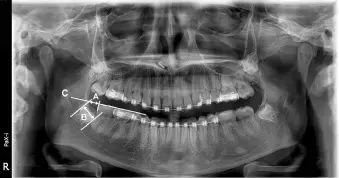- Home
- Medical news & Guidelines
- Anesthesiology
- Cardiology and CTVS
- Critical Care
- Dentistry
- Dermatology
- Diabetes and Endocrinology
- ENT
- Gastroenterology
- Medicine
- Nephrology
- Neurology
- Obstretics-Gynaecology
- Oncology
- Ophthalmology
- Orthopaedics
- Pediatrics-Neonatology
- Psychiatry
- Pulmonology
- Radiology
- Surgery
- Urology
- Laboratory Medicine
- Diet
- Nursing
- Paramedical
- Physiotherapy
- Health news
- Fact Check
- Bone Health Fact Check
- Brain Health Fact Check
- Cancer Related Fact Check
- Child Care Fact Check
- Dental and oral health fact check
- Diabetes and metabolic health fact check
- Diet and Nutrition Fact Check
- Eye and ENT Care Fact Check
- Fitness fact check
- Gut health fact check
- Heart health fact check
- Kidney health fact check
- Medical education fact check
- Men's health fact check
- Respiratory fact check
- Skin and hair care fact check
- Vaccine and Immunization fact check
- Women's health fact check
- AYUSH
- State News
- Andaman and Nicobar Islands
- Andhra Pradesh
- Arunachal Pradesh
- Assam
- Bihar
- Chandigarh
- Chattisgarh
- Dadra and Nagar Haveli
- Daman and Diu
- Delhi
- Goa
- Gujarat
- Haryana
- Himachal Pradesh
- Jammu & Kashmir
- Jharkhand
- Karnataka
- Kerala
- Ladakh
- Lakshadweep
- Madhya Pradesh
- Maharashtra
- Manipur
- Meghalaya
- Mizoram
- Nagaland
- Odisha
- Puducherry
- Punjab
- Rajasthan
- Sikkim
- Tamil Nadu
- Telangana
- Tripura
- Uttar Pradesh
- Uttrakhand
- West Bengal
- Medical Education
- Industry
Developmental disability patients not at higher infection risk after third molar extractions, suggests study

Patients with developmental disability do not at higher rates of infections after third molar extractions, suggests study published in the Journal of Oral Maxillofacial Surgery.
Patients with developmental disabilities may exhibit behavioural problems or be unable to maintain proper hygiene, potentially placing them at greater risk for infection following the extraction of third molars. The purpose of this study was to estimate and compare the risk for surgical site infection after third molar removal between patients with and without developmental disabilities.
This was a retrospective cohort study of patients who underwent extraction of all four-third molars at Boston Children's Hospital from August 1, 2021, to July 31, 2023. Patients were excluded if all four-third molars were not present or if all four-third molars were not extracted during one visit. The primary predictor variable was developmental disability status. Subjects were grouped by developmental disability, coded as present or absent. The primary outcome variable was diagnosis of a postoperative surgical site infection. Secondary outcomes included time to follow-up and infection treatment.
RESULTS: A total of 1,896 subjects were evaluated. There were 236 subjects in the developmental disability group (72.5% male [n = 171] mean age of 19.3 ± 2.7 years) and 1,660 in the nondevelopmental disability group (53.4% female [n = 887] mean age of 19.0 ± 2.3 years). Subjects in the developmental disability group more frequently underwent their extractions in the operating room under general anesthesia (57.6% [n = 136] P < .001). The overall postoperative infection rate was 2.7% (n = 52). There was no statistically significant difference in the rate of infection between the developmental disability group (0.8% [n = 2]) and the nondevelopmental disability group (3.0% [n = 50]) (P = .057). There was no significant difference in time to follow-up between subjects who were and were not diagnosed with an infection (6.26 ± 9.39 weeks vs 4.69 ± 10.95 weeks, P = .434) or for subjects in the developmental disability and nondevelopmental disability group who had an infection (2.64 ± 0.30 weeks vs 6.43 ± 9.76 weeks, P = .588). Patients with a developmental disability do not exhibit higher rates of postoperative infections following third molar extractions when compared to patients without developmental disabilities.
Reference:
Britt MC, Sepe EA, Green MA. Third Molar Extractions in Patients With Developmental Disabilities. J Oral Maxillofac Surg. 2024 Aug 22:S0278-2391(24)00742-0. doi: 10.1016/j.joms.2024.08.012. Epub ahead of print. PMID: 39245262.
Dr. Shravani Dali has completed her BDS from Pravara institute of medical sciences, loni. Following which she extensively worked in the healthcare sector for 2+ years. She has been actively involved in writing blogs in field of health and wellness. Currently she is pursuing her Masters of public health-health administration from Tata institute of social sciences. She can be contacted at editorial@medicaldialogues.in.
Dr Kamal Kant Kohli-MBBS, DTCD- a chest specialist with more than 30 years of practice and a flair for writing clinical articles, Dr Kamal Kant Kohli joined Medical Dialogues as a Chief Editor of Medical News. Besides writing articles, as an editor, he proofreads and verifies all the medical content published on Medical Dialogues including those coming from journals, studies,medical conferences,guidelines etc. Email: drkohli@medicaldialogues.in. Contact no. 011-43720751


